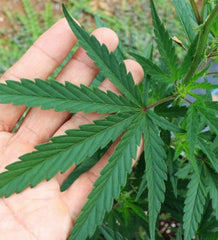
Can CBD help reduce the side effects of immunosuppressants?
Known for its many benefits on human health, CBD is used to relieve various ailments, from physical pain and mental stress to heart disease and many others.
However, immunosuppressant treatments can lead to serious side effects, such as hematological disorders, infections, and even cancer. This raises the question of whether CBD can truly help reduce these side effects. Find out some answers in this article.
Immunosuppressants: What do you need to know?
Immunosuppressive therapy is used to reduce the activity of the immune system. Sometimes the immune system malfunctions or does not function properly.
Hence the importance of using these products to boost the immune system. They can also be used to reset the system.
Immunosuppressants have multiple side effects. However, these vary depending on the product used. Among the common side effects is the risk of infection. This is the most feared because of its devastating effects.
Indeed, when you receive an immune treatment that is not appropriate for your body, it triggers non-tolerance reactions. This results in an attack against your own tissues, particularly white blood cells.
This attack thus causes an inflammatory disease called lupus. This disease can affect the brain, kidneys, skin, or any other part of the body.
Similarly, the onset of anemia can be caused by immunosuppressants. By inhibiting the rapid multiplication of cells, they can cause a blood component such as red blood cells to stop producing their own blood.
This promotes the development of anemia. In addition, immunosuppressants can cause infertility in women. This is often the case when a woman receives high levels of cyclophosphamide.
Furthermore, there is also a risk of cancer in the long term. In fact, sometimes the transplantation of a non-specific immunosuppressant can weaken the body's defenses against cancer cells or certain viruses that facilitate the cancer process.

The action of CBD on the side effects of immunosuppressants
There is not enough research linking the side effects of immunosuppressants to CBD. However, CBD can be used to treat lupus, which is known for its pain caused by inflammation.
Thus, the components of cannabidiol work to minimize the symptoms of the disease. CBD oil has been successfully tested to be very effective in combating lupus. However, several studies are still underway to fully confirm its effectiveness on lupus.
CBD helps to relieve patients in cancer treatment. It is simply a complement to chemotherapy treatments. Therefore, we can say that it is a very useful contribution for the relief of cancer patients.
The patient's quality of life is significantly improved during treatment. In addition to helping reduce anxiety and depression, CBD can relieve nausea, vomiting, and chronic pain that occur during cancer treatment.
So, to reduce one of the side effects of immunosuppressants, which is cancer, it is necessary to go through a complementary treatment based on CBD, which helps to stimulate receptors in the human body.
CBD oil can be used to treat various types of anemia, despite its relatively small benefits. Its benefits are more focused on symptoms of anxiety and stress than on anemia itself.
The first thing to note is that it helps reduce pain and provides some comfort to the patient. Likewise, it can help relieve nerve pain caused by the disease. Furthermore, its contribution to the treatment of sickle cell anemia helps reduce the breakdown of mast cells that cause pain and inflammation.
The use of CBD to better strengthen the immune system
CBD is a product with multiple properties. It is non-psychoactive and has no side effects. Its use allows for proper regulation of ailments of the body, mind, or our immune system by connecting to the body's natural receptors called endocannabinoids.
Thus, the body manages to effectively fight against any attack from external aggressors.
Indeed, it helps to better combat stress by providing natural relief. This eliminates the risk of tension that can weaken the immune system. CBD can also help with sleep disorders and contribute to hormonal balance.
Inflammation is vital to the human body. Its presence helps the human body prevent infections and stop the spread of various diseases.
Sometimes this defense needs help, and CBD supplementation helps maintain healthy inflammation. Indeed, this supplement helps the body replenish its deficiencies by acting on the endocannabinoid system.
CBD helps maintain healthy intestinal immune cells and prevent chronic intestinal inflammation. It also helps stimulate NK cells, which are lymphocytes in the immune system that can eliminate infected cells from the body.
Furthermore, cannabidiol has the potential to modulate autoimmune diseases. Studies have shown that it modulates the immune system to suppress these conditions.
By erasing the immune system's memory, it helps reduce the possibility of future autoimmune attacks. Research has also shown that cannabidiol increases genes that process stress, which helps reduce the damage caused by autoimmune attacks.

Can CBD help reduce the side effects of immunosuppressants?
Yes, CBD can help reduce them. It isn't effective for all side effects caused by immunosuppressants, but it does have a reducing effect.
Can CBD help with infections related to a weakened immune system?
Yes, the properties of CBD can help relieve infections related to a weakened immune system.





